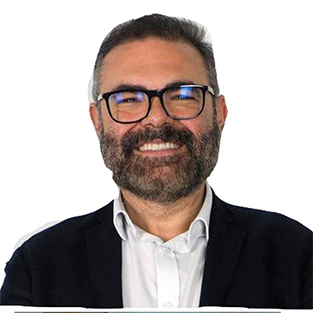
Successful completion of one of our projects in Guatemala
Successful completion of one of our projects in Guatemala Laura Núñez Muñoz More than 20 years of general experience and, for the last 15 years,


PhD in Molecular Biology, Executive MBA, and Expert in Promotion and Project Management of International R&D+I programmes, with extensive experience in R&D and Innovation management. Managing Director of European Funding projects promotion, preparation and management.
In 2018 the Commission proposed an ambitious research and innovation programme of almost €100 billion – Horizon Europe (HE) – to succeed Horizon 2020, for the period 2021-2027. The HE programme is based on three pillars, and within Pillar II there are 6 clusters, the first of which is dedicated to Health.
The objective of this Health cluster is to achieve a more climate neutral and green Europe, fit for the digital age, and in line with the UN Sustainable Development Goals. Through the implementation of these measures, a number of impacts are to be achieved, among them:
These 6 expected impacts translate into 6 missions:
It aims to save more than 3 million lives by 2030. To this end, it acts in 5 areas of intervention: Knowledge, Prevention, Diagnosis and Treatment, Quality of Life, Equitable Access and Cross-cutting Actions through 13 recommendations for action. It has a total budget of €4 billion.
It has Topics open to cancer research when not excluded, and 2 specific Topics:
To this end, it proposes new initiatives in the form of Institutionalised Partnerships (Art. 187; 2021). Partnerships can be Co-programmed (based on contractual agreements), Co-funded (based on a joint programme agreed by the partners), or Institutionalised (based on a long-term dimension and need for integration), based on commitments from the partners through financial contribution (transnational calls for projects), or in-kind (in-kind) (institutional funding).
These include:
EU-Africa Global Health (2021):
Reducing the burden of infectious diseases in sub-Saharan Africa, improving its R&I capacity and preparedness and response, increasing health security, and in particular in an environmental and climate change context, reducing risks of outbreaks, pandemics and antimicrobial resistance. Its precursor in H2020 was EDCTP. It also involves the participation of: UK, Bill and Melinda Gates Foundation, WellcomeTrust, GSK, J&J. It is expected to be launched in Q3-Q4, 2021.
Innovative health (initiative) (2021):
Prevention, diagnosis, treatment and management of diseases, through knowledge and innovations, to meet unmet public health needs, in order to achieve a globally competitive European health industry. Its precursor in H2020 was IMI. It has a total budget of €2.4 billion from the EC, industry associations (COCIR, EFPIA, EuropaBio, MedTecheurope, VaccinesEurope), and others (philanthropy, third countries, other industries).
It aims to foster the development of safe, effective, people-centred and cost-effective innovations. It aims to develop new tools, data, platforms, technologies and processes to improve disease prediction, prevention, interception, diagnosis, treatment and management, harnessing the full potential of digitisation and data sharing in healthcare. For its implementation, open calls will be issued following HE rules, either in one phase, or in two (IMI-type), which are planned to be launched in the last quarter of 2021 or early 2022.
Among the areas of action it wants to address, the following stand out:
Chemical Risk Assessment (2021-2022):
Aims at better risk assessment, in order to protect human health and the environment. Its precursor in H2020 was HBM4EU. It is scheduled to start in 2022.
Health and Care Systems (2021-2022):
Sourcing, transferring, and adopting cost-efficient solutions for health and care systems. Its precursor in H2020 was the AAL Programme, EIO ON AHA, and ToReach.
ERA for Health (2021-2022):
Effective coordination of EU funders of R&D&I in health, with flexible programming, to ensure a transition to more sustainable, resilient, innovative, high quality and people-centred Health Systems. Its objectives are to provide R&I actions to fill knowledge gaps, produce evidence and develop guidance for such transformation; develop new solutions for health in priority areas of common interest to sustain population health; strengthen the R&I community in European health systems; improve the capacity of healthcare stakeholders to adopt innovative solutions, including organisational, service and policy solutions; and establish a platform for coordinating and connecting relevant actors to develop ecosystems that enable rapid scaling and transfer of successful innovations across health systems. Its precursor in H2020 was ERA-NETs.
Personalised Medicine (2023-2024):
Aims to realise a shift in the focus of health systems towards sustainable, data-intensive healthcare. Its precursor in H2020 was ICPerMed.
Rare diseases (2023-2024):
Development of diagnostics and treatments, for greater impact and uptake of results. Its precursor in H2020 was EJP RD.
One Health/AMR (2023-2024):
Aims to contribute to EU and WHO objectives to reduce the threat of multidrug-resistant microorganisms (MRL). Its precursor in H2020 was jpiamr.
Pandemic Preparedness:
Aims to improve EU preparedness to prevent, predict and respond to epidemics/pandemics, through the development of a Strategic Research and Innovation Agenda (SRIA), to be aligned with the future HERA.
Within the Health programmes, the grant obtained by Spain is 393.1 M€ over the period 2014-2021, with the participation of 415 R&D&I activities, being coordinators in 100 (14.2% of the total), placing it as the 5th country by return of the EU 28, with 10.2%.
Euro-Funding offers strategic consultancy services to promote the positioning of public and private entities in the European innovation ecosystem, both in terms of return of funds and participation in projects and interest groups.

Successful completion of one of our projects in Guatemala Laura Núñez Muñoz More than 20 years of general experience and, for the last 15 years,

PERTE for industrial decarbonisation approved PERTE for industrial decarbonisation approved The PERTE is approved with the aim of accompanying industry in its decarbonisation process to

Keys to efficient driving Enrique Roca Industrial Technical Engineer with specialization in Mechanics. He is currently Technical Manager in the Energy Efficiency and Sustainability unit
